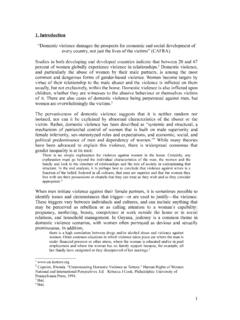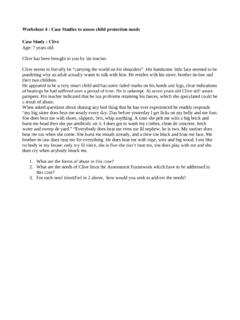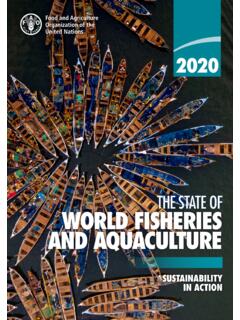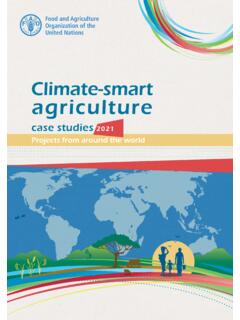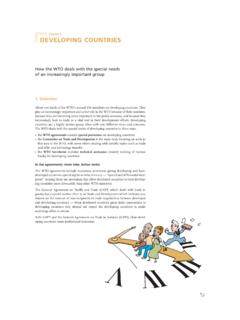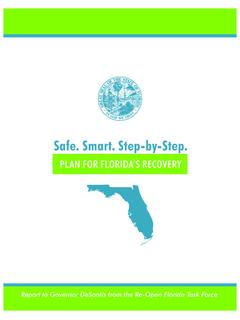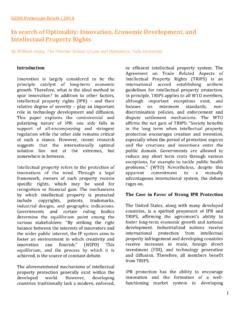Transcription of PROJECT PROPOSAL SUBMITTED BY HELP SHELTER TO …
1 1 PROJECT PROPOSAL SUBMITTED BY HELP & SHELTER TO UNIFEM (CARIBBEAN OFFICE) VAW TRUST FUND 2007 I. ORGANISATIONAL INFORMATION (a) Help Margaret Kertzious, Coordinator, telephone 592-227-8353 Homestretch Avenue, Durban Park, Georgetown Telephone 592-225-4731 592-227-3454 592-227-8353 (fax) Email: (b) Help & SHELTER is a company limited by guarantee with charitable status. (c) Our mandate is to contribute to bringing about a society where attitudes to the use of violence (sexual, physical or psychological) have been transformed. (d) Our goal is to work to build respect for the rights of women, men, children and youths to live free of violence and the threat of violence and also for them to develop alternative ways of handling power and resolving conflicts.
2 (e) Help & SHELTER is the premier organisation leading the fight against violence in Guyana, particularly in the areas of domestic, sexual and child abuse. Other related areas of work are to educate victims and other persons on linkages between abuse and HIV/AIDS, and Trafficking in Persons. (f) The PROJECT will be managed by a coordinator who has over five years of PROJECT management experience and who has received training in PROJECT management under the auspices of USAID. (g) The total annual budget is twenty-one million Guyana dollars. (h) Our latest annual report, including our audited financial statements, has previously been SUBMITTED . Il. PROJECT Title: Public Education & Advocacy to Reduce Gender-Based Violence Duration: 24 months Amount requested US$125,254 III.
3 Focus of the PROJECT The PROJECT will focus on reducing gender-based violence (domestic and sexual violence perpetrated against women, boys and girls) in the home and in the society at large, gender-based violence conflict and post conflict and harmful traditional practices, such as improper upbringing and socialization of males and females in the context of their perceived gender roles. IV. Description of the PROJECT (a) Through the strategies described below the PROJECT will seek to achieve: 2(i) Amendment of and substantial improvements in the effective implementation of the Domestic Violence Act (ii) The enactment and implementation of new sexual offences legislation (iii) Enhanced capacity of Help & SHELTER to provide services to survivors of gender-based violence (iv) Enhance capacity of the police and frontline workers to implement the DVA and handle sexual offences and other cases of gender-based violence (b) The objectives of the PROJECT will be achieved through.
4 (i) Lobbying and advocating for amendments to and improved implementation of the Domestic Violence Act and the enactment and effective implementation of new sexual offences legislation (ii) A national public education and awareness campaign (iii) Collaboration with governmental agencies and other NGOs (iv) The services of a lawyer on a part time basis to provide advice and representation in DVA, sexual offences and other gender-based violence cases on occasions when the Georgetown legal Aid Clinic is unable to assist (v) Training of and awareness sessions with the police and frontline workers. (c) Integral to the PROJECT will be activities to mark International Women s Day and International Day for the Elimination of Violence against Women.
5 V. Beneficiaries The beneficiaries of the PROJECT will be: (a) Survivors of gender-based violence, who will: (i) Be provided with information as to existence of and the relief available under the DVA and the assistance provided by Help & SHELTER and other organisations and agencies, both governmental and non-governmental (ii) Be better able to use the DVA as a result of amendments to and improvements in its implementation and legal assistance provided (iii) Have improved prospects of obtaining justice as a result of the enactment and implementation of new sexual offences legislation and legal assistance provided (b) Police officers, youth and other target groups whose capacity to address gender-based violence has been improved (c)
6 The Guyanese public at large, who will as a result of our national public education and awareness campaign be sensitised on the issue of gender-based violence and made aware of the assistance that is available for survivors (d) Frontline workers (teachers, nurses, police officers, social workers and community leaders) in Region 3 (West Coast Demerara), Region 4 (to be identified) and Region 5 (Mahaicony/West Coast Berbice). Partners will be sister NGOs, the Georgetown legal Aid Clinic (which provides legal assistance to survivors of gender-based violence) and the Ministry of Human Services & Social Security Other stakeholders will be the police force and health workers. VI. Strategies 1. Strengthening legal and policy framework through amendment of and substantial improvements in the effective implementation of the Domestic Violence Act by: (i) Lobbying the government for adoption and implementation of a national Domestic Violence Policy 3(ii) Collaborating and networking with governmental and non-governmental agencies to address DVA implementation issues (iii) Conducting a national public education and awareness campaign using the print and electronic media, leaflets, posters, PSAs etc.
7 (iv) Training of police officers (v) Capacity building with police officers, students, teachers, health centres, youth, women s & religious groups etc (vi) Provision of the services of a lawyer on a part time basis to provide advice and representation in DVA, sexual offences and other gender-based violence cases on occasions when the Georgetown legal Aid Clinic is unable to assist 2. Advocacy for the enactment and implementation of new sexual offences legislation by: (i) Taking part in consultations on the Sexual Offences White Paper and Bill. (ii) Lobbying and advocacy for the speedy enactment and implementation of new sexual offences legislation (iii) Collaborating and networking with governmental and non-governmental agencies in relation to the enactment and implementation of new sexual offences legislation (iv) Training of police officers (v) Capacity building with police officers, students, teachers, health centres, youth, women s & religious groups etc (vi) Provision of the services of a lawyer on a part time basis to provide advice and representation in DVA, sexual offences and other gender-based violence cases on occasions when the Georgetown legal Aid Clinic is unable to assist (vii)
8 Training of frontline workers in Regions 3, 4, and 5. (viii) Meeting one-on-one with magistrates and judges to promote effective implementation of new legislation VII. Situation Analysis Gender-based violence is widespread in Guyana at all socio-economic levels and among all ethnic groups. There is overwhelming evidence that women and girls are more affected than men and boys across the board. Violence against women and girls is still regarded by many as a way of life. There is overwhelming evidence that there is a high level of domestic and sexual violence perpetrated against women and girls in Guyana. According to Help & SHELTER statistical data for the period November 1995 to July 2007, 2942 women seeking our help were physically abused and out of a total of 7224 clients less than 15% were men.
9 During the same period, we saw 432 girls who had been raped and 283 who had been otherwise sexually abused. Sexual abuse obviously renders victims at high risk of contracting HIV. A UNFPA study published in 2004 indicated that women that are beaten or dominated by their partners are more likely to become infected with HIV than women who are in non-violent relationships. The Domestic Violence Act was passed in December 1996 but effective implementation has been slow. For example, even though the DVA allows for police officers to prepare and file applications for protection and other orders this does not happen. Continuous and ongoing gazetting of social workers who are similarly authorised to prepare and file applications for protection orders is also not taking place.
10 Some magistrates also insist - in contravention of the DVA - that victims of domestic violence be represented by lawyers, submit supporting affidavits together with protection orders prepared by lawyers. Lack of knowledge and awareness of the Act on the part of victims, the police and magistrates, and the unwillingness of police and magistrates to exercise their powers under the Act have been and continue to be constraints to the effective use of the Act. The result is fear among victims because they do not feel empowered to take action and do not have the necessary legal advice or safe place to go, or fear further victimization by the criminal justice system. In most cases, victims/survivors believe they have no option but to remain in an abusive environment.
